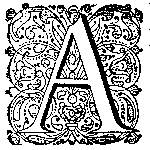Printing Privileges for Psalters in the Seventeenth-Century Dutch Republic
DOI:
https://doi.org/10.51750/emlc20857Keywords:
printing privileges, religious literature, psalters, paratextsAbstract
Starting from the assumption that printing privileges were an important way of enhancing a publication’s reputation, this article focuses on psalters, which played an important role in Protestant religious life in the Dutch Republic. Psalters were among the earliest books granted privileges by the States of Holland and the States-General, and were published with a privilege more often than other works. Furthermore, while privileges were generally applied for by publishers, in the case of psalters it was often the psalmists themselves who were the applicant. This article argues that this remarkable engagement of psalmists and printers of psalters in the system of printing privileges interacted with the pluralism of the seventeenth-century Dutch religious landscape, showing how the contexts of the privileged psalters diversified: whereas the first privileges were connected to the Dutch Revolt and the creation of a strong Reformed church, later on in the seventeenth century privileged psalters also became important within other churches. An analysis of the use of the privileges in the front matter of psalters suggests that the sense of political approval of the privilege interacted with the religious approval that psalmists sought. When aiming at an official position within the church, a psalmist was probably at a disadvantage if their work was lacking such a privilege.
Downloads

Published
Issue
Section
License
Copyright (c) 2024 Nina Geerdink

This work is licensed under a Creative Commons Attribution-NonCommercial 4.0 International License.





